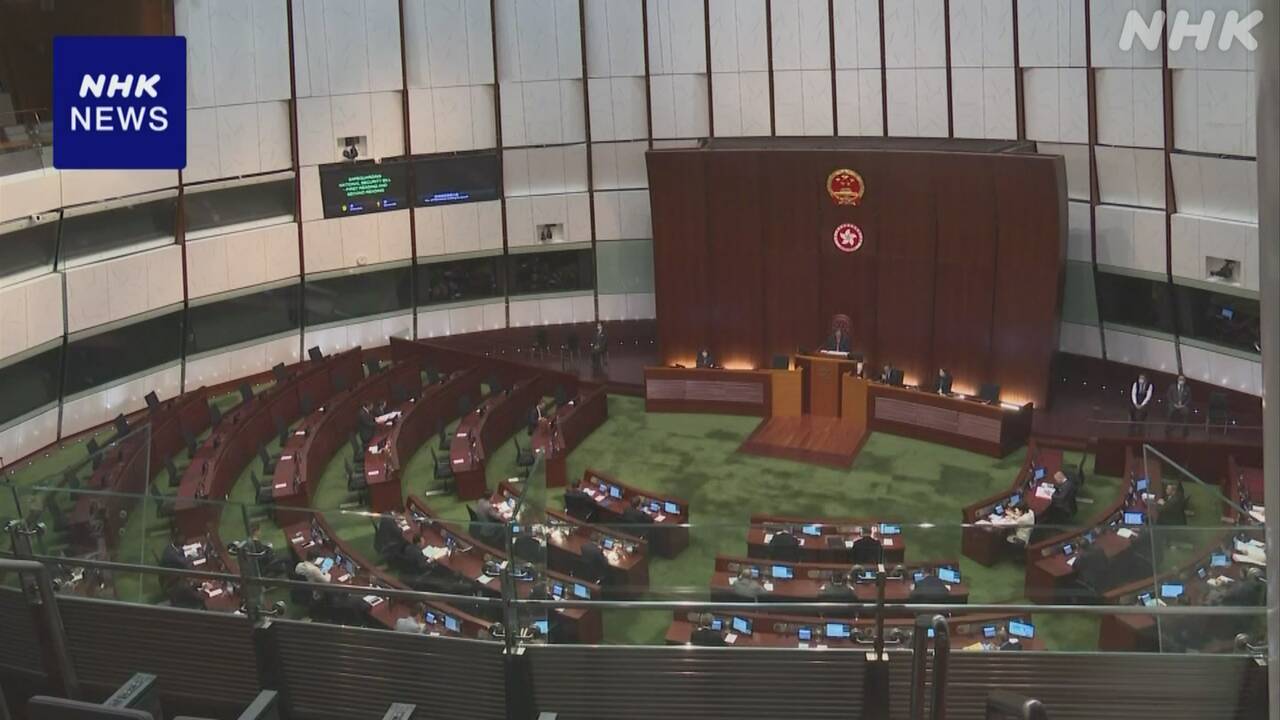The Hong Kong government submitted its own draft ordinance to the parliament on the 8th to crack down on acts that threaten national security, and deliberation began on the same day.
Pro-China factions that support the enactment of the ordinance have almost a monopoly of seats in the parliament, so it is expected that the bill will be passed quickly.
The Hong Kong government is aiming to enact Hong Kong's own National Security Ordinance to supplement the Hong Kong National Security Law that came into effect four years ago, and submitted the draft ordinance to the Legislative Council, Hong Kong's parliament, on the 8th. Did.
The proposed ordinance
prohibits acts such as
theft
of "state secrets," espionage
, incitement to rebellion, and interference by foreign forces as acts that threaten national security, and states that violations would be punishable by up to life in prison.
Masu.
The Legislative Council began deliberations on the same day, and the Hong Kong government's Director-General of Security, Deng Bing-Qiang, called for prompt deliberations, stating, ``There are many national security risks, and we must enact the law as soon as possible to close loopholes.'' .
Regarding the proposed ordinance, some have voiced concerns about its impact on business and freedom of the press, with the definition of ``state secrets'' being too broad and ambiguous.
When the Hong Kong government aimed to enact a similar ordinance in 2003, it was forced to withdraw it due to strong public opposition, but since the Hong Kong National Security Law was enacted, the protests of the past have been strictly suppressed. It is included.
In the Legislative Council, pro-China factions who support the enactment of the proposed ordinance have almost a monopoly on seats, so deliberations are expected to proceed quickly and the bill to be enacted quickly.
*Tou roughly translates to “nobori”.

